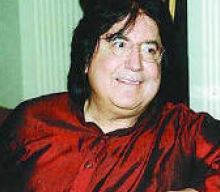|
TRANSLATE THIS ARTICLE
Integral World: Exploring Theories of Everything
An independent forum for a critical discussion of the integral philosophy of Ken Wilber
 Joe Corbett has been living in Shanghai and Beijing since 2001. He has taught at American and Chinese universities using the AQAL model as an analytical tool in Western Literature, Sociology and Anthropology, Environmental Science, and Communications. He has a BA in Philosophy and Religion as well as an MA in Interdisciplinary Social Science, and did his PhD work on modern and postmodern discourses of self-development, all at public universities in San Francisco and Los Angeles, California. He can be reached at [email protected]. Joe Corbett has been living in Shanghai and Beijing since 2001. He has taught at American and Chinese universities using the AQAL model as an analytical tool in Western Literature, Sociology and Anthropology, Environmental Science, and Communications. He has a BA in Philosophy and Religion as well as an MA in Interdisciplinary Social Science, and did his PhD work on modern and postmodern discourses of self-development, all at public universities in San Francisco and Los Angeles, California. He can be reached at [email protected].
SEE MORE ESSAYS WRITTEN BY JOE CORBETT Is Integral Theory Based On an Epistemic Fallacy?Joe CorbettAn epistemic fallacy is a mistake in how one has constructed ones knowledge of the world, such that what one believes to be a verified body of objective knowledge is actually a construction of the tools and instruments one uses, including the history and structures of ones society and culture, rather than being a property of the world itself. This critique of how knowledge is constructed is an important part of the work of Roy Bhaskar[1] and Critical Realism (CR), and it goes to the heart of how Integral Theory (IT) may be constructed based on the developmental model of Claire Graves, Don Beck, et al. To introduce the relevance of CR to IT and what stakes are involved, here is a quote by Bonnitta Roy, from the integralpostmetaphysics ning forum:[2] “The ramification of this critique is huge for IT. It suggests that all the developmental theories – which derive their validity from empirical research – are lacking a key explanatory critique[3]…. The empiricist in you says only “that they are” and posits that this is a deep truth about the universe. The [critical realist] says, but these stages *are the way they are* because of *structures* that are contingent and are operating outside the field that you are studying.
Integral Theory may be based on the socio-historical delusion of the West that its own relative cultural trajectory of ego development is an objective universal.
So there you have it, IT may be based on the socio-historical delusion of the West that its own relative cultural trajectory of ego development is an objective universal. Of course, cross-cultural studies can be used to either support or refute the developmental model of the ego, but even if we grant cross-cultural validity to the model this would still leave the historical fact of global western imperialism and its influence on the world's cultures unexamined. Moreover, even aside from the certainty of the influence of western global hegemony on the cross-cultural formation of ego development, there is still the issue of the measuring instruments themselves as projections of the perceptual characteristics and theoretical constructs of the surveyors rather than the subjects themselves, making the developmental model “like a self-fulfilling hall of mirrors”. If this is the case, then the developmental model doesn't so much measure a linear hierarchical scale of development as it does an ideal of what it takes to become a well-adjusted and successful person within the system of the western enlightenment tradition. BAM!! From the perspective of an Integral Critical Theory (ICT)[4], the developmental model of the ego based on the western socio-cultural trajectory of history culminates in the rational autonomous ego of the western enlightenment and advances from there to the fragmented, diversified, and flexible postmodern self of western liberalism. This is an historical trajectory where strategic-instrumental rationality has been over-developed at the expense of other possible trajectories. Alternative possible developmental outcomes for the ego-self, such as an ego-self based in and developed along a communal-aesthetic sensibility, for instance, that looks inward rather than outward for its confirmation of reality, have been eliminated from the realm of historical possibility. It's not that non-western, pre-modern, or traditional cultures don't have strategic-instrumental rationality, after all, or that the West doesn't have communal-aesthetic rationality, but rather it's that prior to western imperialist expansion and the enlightenment, people weren't so dominated like slaves to the imperatives of efficiency, control, and utility in virtually every thing and every institution they were involved in within society and culture. As a consequence, other combinations and grammars of the forms of life could have been developed and allowed to flourish, which means that other possibilities and other developmental hierarchies await to be discovered, if their existence and even their possibility of existing has not already been eliminated by western hegemony. A perspective informed by ICT would therefore say that the developmental model is indeed valid, but only within a western enlightenment developmental framework. Other developmental frameworks are possible, and some are more desirable even from a western perspective. Rather than an ego-self based on the development of a rational autonomous ego where strategic and instrumental self-interests are paramount, development could proceed along the lines of any number of combinations of the four quadrants (instrumental-technical-UR, aesthetic-therapeutic-UL, moral-communal-LL, strategic-political-LR), and with different emphases on which ones would be prioritized (or dominate) in the formation of the ego's action-orientations, identity, and self-esteem. As we are shaped and exist as egos now, the external quadrants of instrumental-technical and strategic-political metrics are used as the basis for assessing a hierarchical level of development, from pre-rational to rational and beyond, with those who are considered to excel in these exterior domains to be “more developed”. But as it becomes increasingly apparent that other value-orientations relating to the personal and moral qualities of individuals and collectivities need strengthening relative to the strategic-instrumental imperatives of the neo-liberal global capitalist regime, which is itself the ideal condition for the emergence and fulfillment of the rational autonomous ego among political and economic elites, the developmental value assessment based on these exterior domains becomes increasingly suspect as well. A re-balancing of the different spheres of rationality in the formation of the ego-self within the dominant form of scientific-capitalist materialism, would be a significant step in the direction of the fulfillment of the project of modernity in the creation of an ideal speech-action situation free from the distorting influences of power/money, as conceived by Jurgen Habermas. This could also serve as the integral platform for the fulfillment of integrated wholeness in the individual and the collective, as conceived by Jean Gebser. In the future one might suspect, or hope, that the development of the ego will proceed along the lines of what has already emerged as a dominant form, namely, the rational autonomous ego of the western enlightenment tradition, but with a more balanced emphasis on other grammars of life for a more fulfilling and whole moral-communal and aesthetic-therapeutic social and natural environment in which human beings can flourish. In the meantime, my proposition for integralists is that we become more like a reflexive CRITIC: CR (critical realism) + IT (integral theory) + IC (integral critique) = CRITIC NOTES[1] “Roy Bhaskar is a leading British philosopher who has authored or edited over 30 books and in the process has produced Critical Realism, a robust philosophical system. Critical Realism has a large secondary literature built around Bhaskar's corpus, with several book series published by Routledge Press. Critical Realism is known for its powerful critiques of both modern positivist science and postmodern sociology. There is an emphasis on ontology and the emancipatory potential of scientific inquiry.” (Source: foundation.metaintegral.org) [2] Bonnitta Roy, "Report from Critical Realism Integral Theory Symposium", posted Oct. 27, 2011, on the "Integral Post-Metaphysical Spirituality" forum. Roy was a "theoretical referee of sorts" at the Critical Realism and Integral Theory symposium, held at JFK University, September 15-18, 2011. [3] Ibid. 'The method that CR uses is a dialectical method that has 3 major “steps” (there are several more steps in his system, I am generalizing). First there is what [Bhaskar] terms “immanent critique”. This is where you critique the system from within the system’s own understanding. An important part of immanent critique is pointing out what is absent from the system/theory. The second step is “explanatory critique” which explains the system’s inconsistencies by pointing to what is left out and explains why the “truths” that arise within the system are merely “apparent truths” when the greater view is taken into account. The third step is an emancipatory “leap” -- which is an axiological step, or relates to values. The emancipatory leap asks what has to be “absented” from this line of reasoning to redress oppression or to transform the system toward greater liberation. This last step relies on principles Bhaskar calls “co-presencing” or “transcendental identification.”' [4] Joe Corbet, "What is Integral Critical Theory?", November 2011, http://www.integralworld.net/corbett8.html
|

